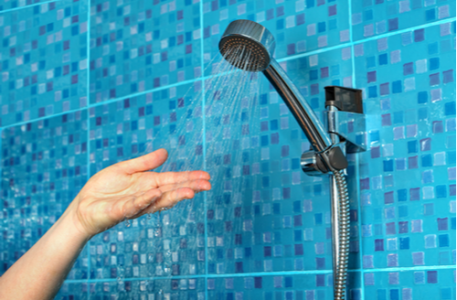
Shower Walls: What Type of Surface Suits Your Lifestyle and Your Budget?
Remodeling a full bathroom is an expensive project that requires numerous decisions. One of the most significant issues is selecting the material for your shower walls. Whether you’re planning a dedicated shower or a combination shower and tub, you’ll want the surrounding walls to look and perform their best.
The range of shower wall options is vast and complex. Here are five factors to consider to make the best choice.
1. Watertightness
Water can fly everywhere when bathing. So perhaps more than any other part of your home, a shower must be watertight. If it isn’t, you risk setting the stage for significant problems, including water damage to the surrounding materials.
Even the slightest amount of water behind a shower wall will encourage the growth of unsightly and potentially unhealthy mold. Surface cleaning may temporarily keep mold at bay once mold establishes itself.
Fewer grout lines and caulked seams can help reduce the possibility of water leaks and mold. Prefabricated acrylic shower systems do score high marks in this regard, plus they’re often an economical option.
But if you’re committed to using tile or seamed wall panels, it’s essential to understand the importance of prioritizing water tightness—using optimal materials and installing everything correctly. This is one project that you might want to turn over to an experienced and reputable professional.
2. Maintenance
How much time do you want to spend cleaning your shower? Do you mind spraying or wiping down the walls each day?
Some shower surfaces require more attention than others. Also, maintaining a clean shower often depends on the type of water you have (hard or soft) and the kind of soap you use (bar or liquid). Generally, smooth surfaces are less likely to trap residue and are easier to maintain.
It’s also important to inspect any caulked shower seams periodically to ensure there are no gaps that could cause leaks. Typically, silicone caulk is best for showers to prevent mold and maintain water tightness.
3. Aesthetics
Remodeling your shower is an excellent opportunity to express your style. However, it isn’t easy to make up your mind with so many options available!
The alternatives fall into three general categories:
Ceramic tile
Tile showers are custom built onsite, potentially including a customized base comprised of smaller mosaic tiles (to prevent slipping).
Installation involves multiple steps spread over numerous days to allow adequate drying time. The steps typically include framing the structure, adding cement panel boards and a waterproof membrane, planning the layout, cutting the tile, setting the tile in mortar, applying grout, and cleaning and sealing the tile.
Solid panels
One way to reduce grout lines (and installation time) is to use solid shower wall panels, where the seams are usually limited to the corners and along the base. Like tile, you’ll find an extensive range of materials and prices in the world of solid shower panels.
Manufacturers develop their own proprietary blend of composite materials, often including crushed stones (granite, quartz, marble, etc.) and pigments, held together by resins and epoxies. You’ll also find solid panels made from acrylics, plastic, and polymers.
Examples of solid shower panels include products from Corian, DreamLine, the Onyx Collection, and Swan.
Prefabricated shower systems
Typically, prefabricated showers are only offered in a limited number of standard sizes, matching the most common shower dimensions. All-in-one units tend to work best in new construction when positioned before other walls are completed.
On the other hand, home remodelers need to consider how to move a new shower unit into a bathroom. The dimensions of your door openings and hallways may limit your options. For this reason, a shower kit that breaks down into several large pieces may work best.
Popular features include built-in shelves, grab bars, and benches. Manufacturers of molded, prefabricated shower systems include Delta, Oasis, and Sterling.
4. Cost
Showers cover a broad price range. HomeAdvisor breaks down the components of a complete bathroom remodel and says the cost to install a shower runs from $450 to $10,000 (materials and labor).
When budgeting your project, pay equal attention to materials and labor. Tile, for example, can seem affordable on a square foot basis. But the price to have a tile shower installed could easily add over $2,000 to your project.
5. Longevity
Finally, when considering what shower materials you want to invest in, think about durability and home decor trends. Ideally, you want your shower walls to maintain their like-new appearance and contribute to your home’s long-term resale value.
